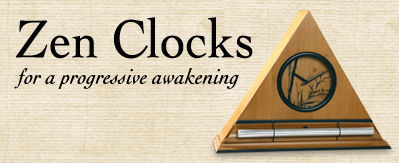
Lady purple - Gong Meditation Timer with Acoustic Sound
You spill a cup of coffee all over your desk. How do you react? If you’re chatting on the phone with a new love interest, you shrug and chalk it up to giddy distraction. If it’s right before an important meeting, you feel annoyed, even angry with yourself. Why the difference? In one scenario, it’s just an accident. In the other, it goes to prove your day is doomed.
There’s a reason for this: We view the world through mood-colored glasses, interpreting events according to how we feel at the time. But while we may swear that the guy who cuts us off in traffic ruined our morning, it’s the way we respond that creates our experience. Life’s little annoyances themselves don’t sour a day; they serve as a reflection of the mood we’re already in. “When you focus on negative thoughts or memories, you begin to interpret events around you through that lens, which generates more negative thoughts,” says cognitive psychologist John Selby, coauthor of “Take Charge of Your Mind.” It’s a vicious cycle — and one that can cause even the best of moods to plummet.
When negative thoughts or difficult circumstances begin to upset you and make your blood pressure rise, stop and say to yourself: “I feel the air flowing in and out of my nose.” Let those words gently guide your attention to the actual experience of breathing.

Meditation for a Better Mood
Choose a stillness practice like meditating:
Meditation is generally an inwardly oriented, personal practice, which individuals do by themselves. Meditation may involve invoking or cultivating a feeling or internal state, such as compassion, or attending to a specific focal point. The term can refer to the state itself, as well as to practices or techniques employed to cultivate the state. There are dozens of specific styles of meditation practice; the word meditation may carry different meanings in different contexts. Meditation has been practiced since antiquity as a component of numerous religious traditions. A 2007 study by the U.S. government found that nearly 9.4% of U.S. adults (over 20 million) had practiced meditation within the past 12 months, up from 7.6% (more than 15 million people) in 2002.
Although meditation can be done in almost any context, practitioners usually employ a quiet, tranquil space, a meditation cushion or bench, and some kind of timing device to time the meditation session. Ideally, the more these accoutrements can be integrated the better. Thus, it is conducive to a satisfying meditation practice to have a timer or clock that is tranquil and beautiful. Using a kitchen timer or beeper watch is less than ideal. And it was with these considerations in mind that we designed our digital Zen Alarm Clock and practice timer. This unique “Zen Clock” features a long-resonating acoustic chime that brings the meditation session to a gradual close, preserving the environment of stillness while also acting as an effective time signal. The Digital Zen Clock can be programmed to chime at the end of the meditation session or periodically throughout the session as a kind of sonic yantra. The beauty and functionality of the Zen Clock/Timer makes it a meditation tool that can actually help you “make time” for meditation in your life.

Meditation Timers and Gentle Chime Alarm Clocks by Now & Zen, Inc.
Now & Zen’s Chime Alarm Clock Store
1638 Pearl Street
Boulder, CO 80302
(800) 779-6383
Posted in Bamboo Chime Clocks, Meditation Timers, Meditation Tools, mindfulness practice